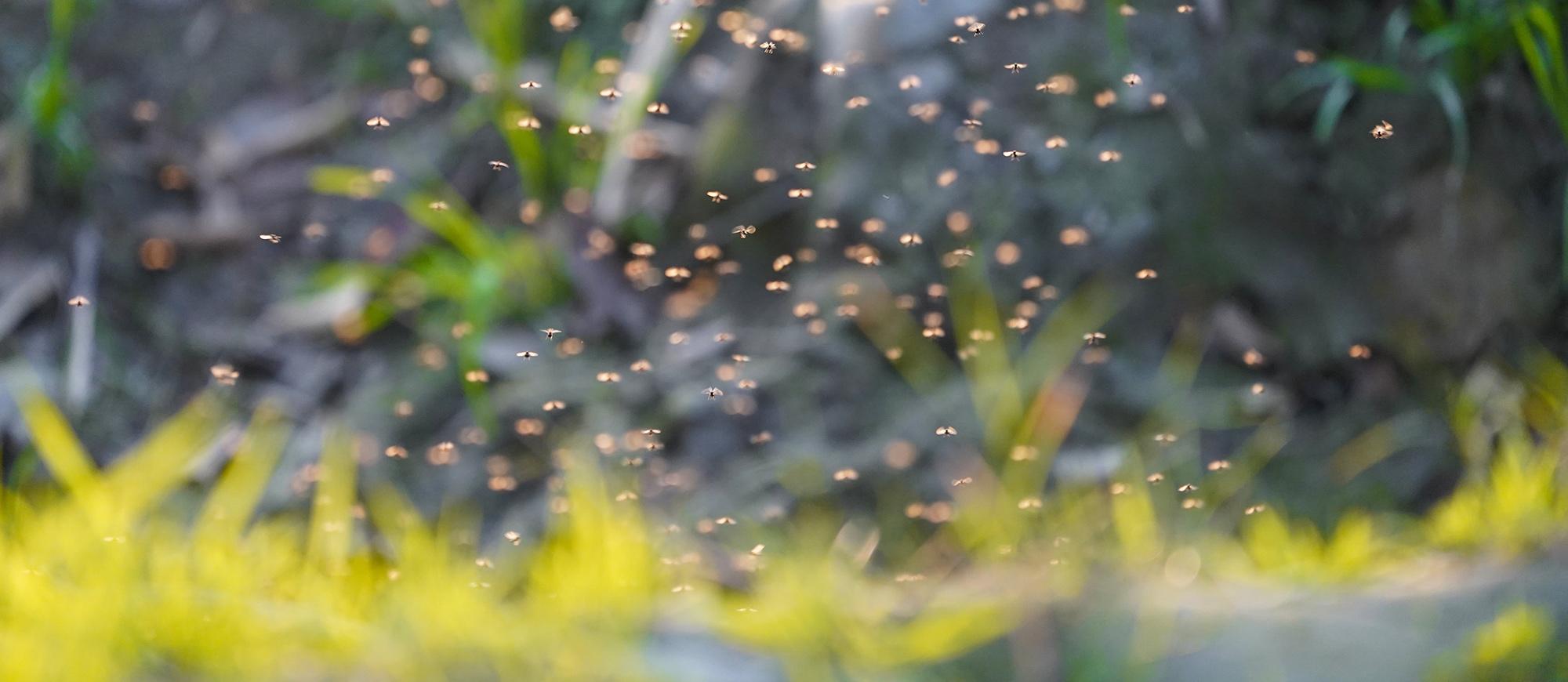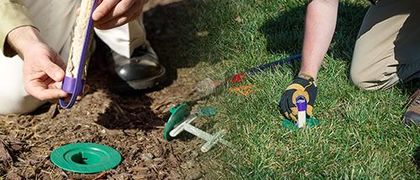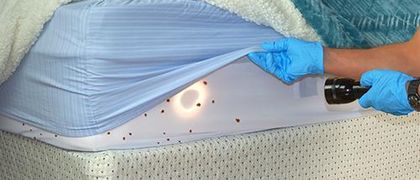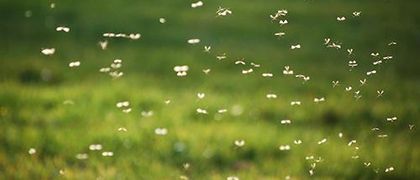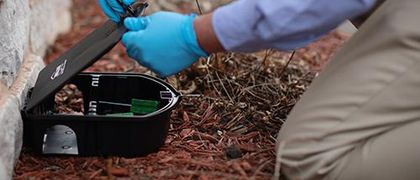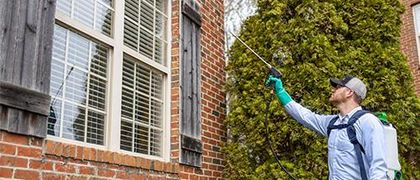What do mosquitoes look like?
- Size: 1/4 -3/8-inch long, depending on the species
- Color: Varies; mostly gray or brown with white, silver, green or iridescent blue scales
- Body Structure: Mosquito bodies are made up of a head, thorax, abdomen, two wings, two compound eyes, two simple eyes, and a serrated proboscis.
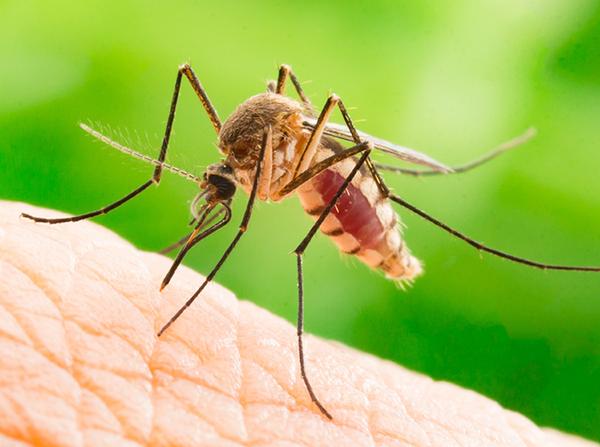
Characteristics of mosquitoes
Female mosquitoes attract males by beating their wings at the rate of up to 500 times per second. The female will seek out a protein-providing blood meal and, once fed, rest for a couple of days before laying hundreds of eggs in stagnant water. After one to four days, eggs develop into larva and remain in water for the first 10-14 days, feeding on organic matter, before turning into a partially cocooned pupa. After this stage, which lasts for a few days, the pupa turns into adult mosquitoes. On average, the male mosquito lives 10 days while the female can survive up to two months. During their lifetime, females lay eggs approximately every three days.
When are mosquitoes most active?
What do mosquitoes eat?
Both male and female mosquitoes feed on nectar from flowers, but the female requires blood to reproduce. Female mosquitoes feed both day and night and can drink up to three times their body weight in blood. While some species exclusively seek out human hosts, others specifically target birds, reptiles, or other types of animals.
Are mosquitoes dangerous?
When a mosquito bites, the saliva passed creates an allergic reaction that can result in red, itchy bumps or welts. These areas can become inflamed and, if scratched to excess, cause secondary skin infections.
Mosquitoes spread deadly diseases that include malaria, dengue fever, West Nile virus, yellow fever, encephalitis, elephantiasis, and Zika virus. While these are more common in other countries, causing millions of deaths each year, cases also occur in the United States.
Mosquito attacks can be especially harmful to children, the elderly, and those with compromised immune systems, and can also cause birth defects in unborn children.
Mosquitoes also pass parasites and disease to animals, including heartworm which can be fatal to dogs.
What attracts mosquitoes to people?
Mosquitoes prefer dark colors and are attracted to their victims by smell, heat, and motion. They migrate to carbon dioxide exhaled during breathing. Pregnant women, larger people, and those who are exercising tend to give off more carbon dioxide and are, therefore, more likely to be bitten.
Body heat also attracts mosquitoes; they use heat sensors to seek out an exposed part of their victim’s body where blood is close to the surface. Sweat and body odor — or more specifically the bacteria they contain — draw mosquitoes, especially those that carry malaria. Some humans also give off secretions that are enticing to mosquitoes.
Why do I have a mosquito problem?
Properties with standing water provide the perfect breeding grounds for mosquitoes. Clogged rain gutters, old tires, buckets, and other containers that can hold water will encourage mosquito activity. Tall grass, overgrown gardens, and flowerbeds also attract mosquitoes.
How do I get rid of mosquitoes?
For effective mosquito treatments that significantly reduce mosquito populations during the warmer months, contact a licensed pest control company that specializes in treating these biting pests.
At Miller Pest & Termite, we’ve been helping Midwest property owners avoid mosquito bites and the risks that come with them since 2001. Contact us today to find out how our team can help you eliminate mosquitoes!
How can I prevent a mosquito problem?
To make your property less appealing to mosquitoes, our experienced pest control professionals recommend the following mosquito prevention tips:
- Remove standing water where mosquitoes lay eggs – this includes old tires, kiddie pools, toys, empty flower pots, tarps, and trash can covers
- Clear gutters of leaves, twigs, and other debris that stops water from freely flowing
- Point downspouts away from the foundation of the house
- Fill holes in the ground
- Remove dead or rotting trees and other debris
- Replace or repair torn window screens
- Keep entry doors and garage doors closed when not in use
- Limit the number of flowering plants on your property or at least close to your home and outdoor living space


Get Help Now!

